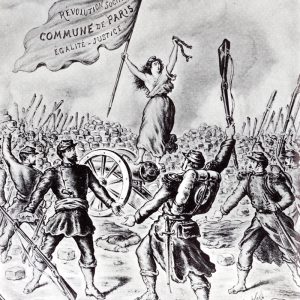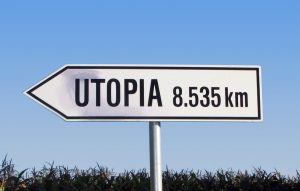 The course brings Social Ecology into conversation with a variety of thinkers and traditions, comparing dialectical versus conventional thought via Ernst Bloch and Murray Bookchin, exploring the potentialities for change in specific historical moments with Karl Marx and Karl Polanyi, reading Gramsci and Poulantzas on the relationship of capitalism and the state, and discussing political strategy through the work of Rosa Luxemburg and David Harvey. View the full syllabus here: syllabus_RST_fall 2019.
The course brings Social Ecology into conversation with a variety of thinkers and traditions, comparing dialectical versus conventional thought via Ernst Bloch and Murray Bookchin, exploring the potentialities for change in specific historical moments with Karl Marx and Karl Polanyi, reading Gramsci and Poulantzas on the relationship of capitalism and the state, and discussing political strategy through the work of Rosa Luxemburg and David Harvey. View the full syllabus here: syllabus_RST_fall 2019.
The course is structured as a participatory online seminar comprised of five sessions. Each Zoom video meeting starts with a short introduction of the texts, central issues and questions by the instructor, followed by facilitated discussions among participants. The aim is to develop new questions about common problems and dilemmas rather than provide simple, closed answers. All texts are provided via download via the course portal.
Next full seminar dates to be announced. Registration costs $80 and is open to everyone, but space is limited. We try to make our programs affordable while also covering costs; payment plans and need-based scholarships are available. Our classes are typically very international; we encourage global participation.
The course is also available in a self-directed format that features the same materials minus the fixed time commitment of the weekly seminar. The self-directed version of the course costs $40 and can be started at any time.
REGISTER NOW for the self-directed version of the Rethinking Social Transformation.
Course overview
The first session explores dialectical thinking as an alternative to static forms of conventional reason. It discusses the ideas of Murray Bookchin and Ernst Bloch regarding the difference between dialectical thinking and instrumental or utilitarian logic.
The second session brings dialectical thinking to bear on the topic of historical change. It charts the transformations that occur between historical periods,  focusing on how potentialities within one conjuncture are nurtured, develop, and are eventually actualized in the birth of a new social order. This discussion is informed by selected readings by Marx, Bookchin, and Karl Polanyi.
focusing on how potentialities within one conjuncture are nurtured, develop, and are eventually actualized in the birth of a new social order. This discussion is informed by selected readings by Marx, Bookchin, and Karl Polanyi.
The third session applies this dialectical analysis of historical development to our contemporary context by considering capitalism as a conflicted and contradictory form of society. This will involve reflecting on the progress of struggles for emancipation, unfulfilled potentialities in the present, and the specific limitations which constrain these liberatory developments. It addresses Bookchin’s ideas of democracy and statecraft, freedom and unfreedom, universalism and particularism, among other topics. We also engage with Gramsci’s idea of hegemony to consider how such contradictions are held together, and Poulantzas’ idea of ‘compromise’ to reflect on how one may go beyond current disequilibriums.
The fourth session centers questions of political strategy and agency, discussing the possibilities and limitations of action via selections from Rosa Luxemburg’s classic essay ‘Reform of Revolution?’ Enriched by Gramsci’s Prison Notebooks, we explore the problems of both ‘determinist’ and ‘voluntarist’ conceptions of agency, and imagine going beyond the utopia/pragmatism binary via Luxemburg’s notion of ‘revolutionary Realpolitik.’
The final session makes this discussion more concrete by considering strategy in the context of urban spaces today, agency in terms of (universal) citizenship, and freedom in terms of expanding democratic popular self-governance. The discussion will interrogate the contemporary activist turn towards ‘municipalism’ through readings of Bookchin’s libertarian municipalism as well as David Harvey’s discussion of the right to the city.

